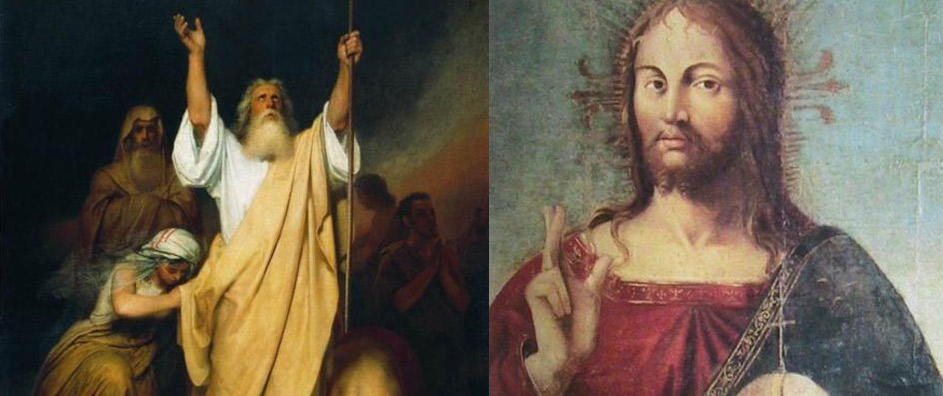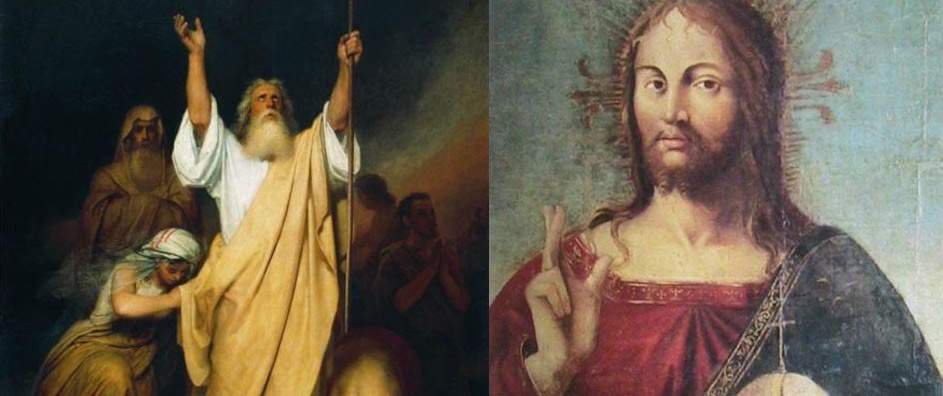The views expressed in our content reflect individual perspectives and do not represent the authoritative views of the Baha'i Faith.
 This is Part 2 of the Jesus Christ in His Own Words series:
This is Part 2 of the Jesus Christ in His Own Words series:
Christ is ever in the world of existence. He has never disappeared out of it…. Rest assured that Christ is present. The Spiritual beauty we see around us today is from the breathings of Christ. – A Message from Abdu’l-Baha Written for The Christian Commonwealth, September 29th, 1911, Abdu’l-Baha in London, p. 40.
In Part 1 of this series, we explored the testimony of Moses, the Apostle Peter and Jesus Christ, Himself, that Christ was the “Prophet like Moses” foretold in the Book of Deuteronomy (18:15—“The Lord your God will raise up for you a Prophet like me from your midst, from your brethren. Him you shall hear…” NKJV).
Christ’s testimony is in John 5:45-47:
Do not think that I shall accuse you to the Father; there is one who accuses you — Moses, in whom you trust. For if you believed Moses, you would believe Me; for he wrote about Me.
In Acts 3:19-26, Christ’s foremost apostle, Peter, confirms the connection between Moses and Christ Jesus, saying that the Prophet God raised up was none other than “His Servant, Jesus”.
I can’t overemphasize the significance of this. Jesus is making what, to a Jew, would have been a stupendous claim — that, rather than receiving inspiration in visions and dreams as the lesser prophets did, He, like Moses, saw the “form” of the Father. The Torah clearly says that this distinguished Moses from prophets like Ezekiel or Isaiah. Moses did not receive mere visions and intimations from God. He saw God face to Face:
Hear now My words: If there is a prophet among you, I, the Lord, make Myself known to him in a vision; I speak to him in a dream. Not so with My servant Moses; He is faithful in all My house. I speak with him face to face, even plainly, and not in dark sayings; and he sees the form of the Lord. — Numbers 12: 6-8
 Jesus Christ claims this same distinction explicitly. He says, in John 6:46, “Not that anyone has seen the Father, except He who is from God; He has seen the Father”. In this single sentence, Jesus Christ establishes His own authority by claiming that He, like Moses, has seen the Father.
Jesus Christ claims this same distinction explicitly. He says, in John 6:46, “Not that anyone has seen the Father, except He who is from God; He has seen the Father”. In this single sentence, Jesus Christ establishes His own authority by claiming that He, like Moses, has seen the Father.
The name “Moses”, by the way, is Egyptian and means “a son”, while Jesus is spoken of as the Son of God. The claim of sonship had deep cultural significance for the Jews, for an eldest son had the authority to bind contracts on behalf of his father. It is a statement of unique authority.
I had been raised with the typical Christian church teaching that Jesus Christ was unique in all of creation and that the veracity of His teachings depended on this uniqueness — a uniqueness proven by the physical resurrection of His body. Yet, the words of the Bible I had been raised to revere challenged that belief, and called on me to adjust my understanding of both Moses and Jesus.
But Christ not only claims a kinship with Moses and the Prophets that Peter says God has been sending “since the world began”—He foretells, Himself, that there will be future revelations from the God of all mankind.
That’s what I’d like to explore next time, the answer to my own childhood question: Why did God only speak once?
Read the next article in the series – Jesus Christ: The Bread of Life
Read the previous article in the series – Jesus Christ: A Prophet Like Moses
















Comments
Sign in or create an account
Continue with Googleor